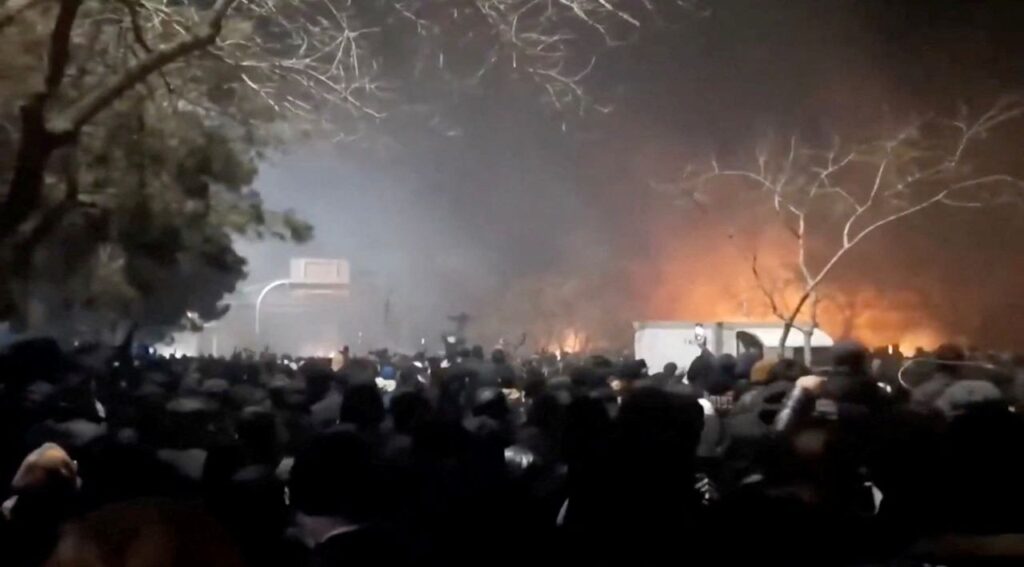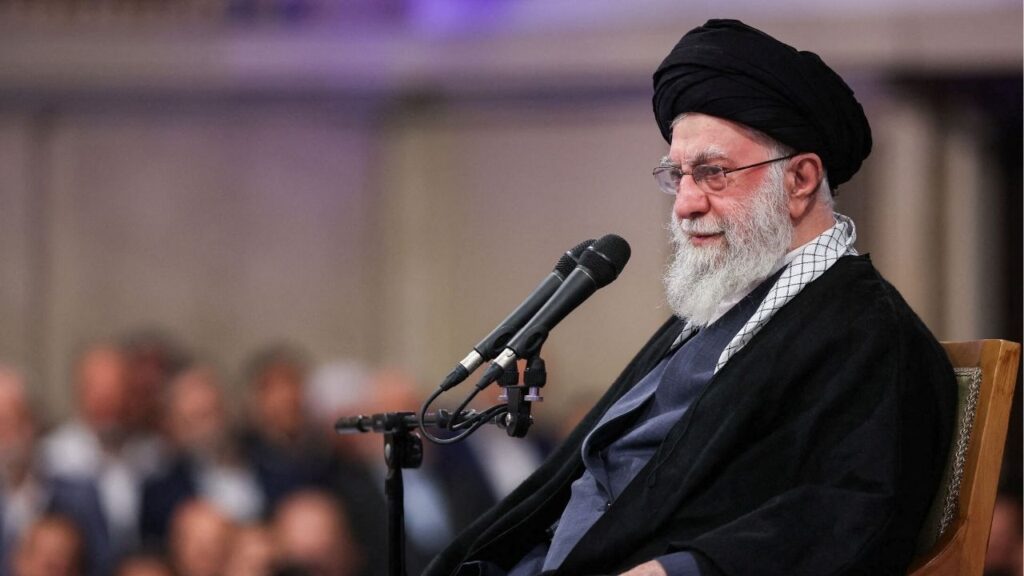Gov. Gavin Newsom's political influence wanes as he faces challenges from the Legislature and upcoming ballot measures. (CalMatters/Florence Middleton)

- Newsom's approval rating drops to 44% as 62% of Californians believe the state is headed in the wrong direction.
- Two major ballot measures, Props 35 and 36, challenge Newsom's agenda on healthcare funding and crime penalties.
- Legislative leaders rebuff Newsom's last-minute proposals, highlighting his diminished ability to dictate policy.
Share
|
Getting your Trinity Audio player ready...
|
Gavin Newsom’s flirtation with national political status ended abruptly when Vice President Kamala Harris, often depicted as his rival, became the Democratic Party’s presidential candidate.

Dan Walters
CalMatters
Opinion
For months California’s governor had been soliciting national media attention, making campaign-like visits to other states and otherwise acting like an aspirant for the White House — all the while insisting that he had “sub-zero” interest in such a goal.
Virtually ignored at the Democratic National Convention, Newsom’s disdain for the party’s rapid embrace of Harris was evident in a podcast interview.
“Now we went through a very open process, a very inclusive process,” Newsom responded to a question about party leaders’ anointment of Harris. “It was bottom-up, I don’t know if you know that. That’s what I’ve been told to say.”
Moreover, as he returns to gubernatorial duties and reality, Newsom is finding that his status in California has also taken a beating.
A poll the Public Policy Institute of California took in June found that 62% of adults believe the state is headed in the wrong direction and only 44% approve of Newsom’s performance as governor.
Related Story: Will Gov. Newsom Call a Special Session to Deal With Gas Prices?
Diminished Influence on State Politics
Newsom’s diminished popularity and the simple fact that his governorship is beginning to wind down manifest a declining ability to dominate the state’s political playing field.
One example is the presence of two major measures on the Nov. 5 ballot that he opposes, Propositions 35 and 36.
Prop. 35, if passed, would make a tax on health care plans permanent and direct its proceeds and the extra federal money it would draw into higher reimbursements for those providing care to Medi-Cal recipients. Indirectly, it prevents Newsom from using the funds, billions of dollars, to close chronic budget deficits.
Prop. 36 toughens penalties for some crimes, modifying Prop. 47, a landmark measure voters passed in 2014 that reduced penalties. Newsom tried — and failed — to head off Prop. 36 with a rival measure.
Related Story: CHP Has 1 in 6 Jobs Vacant Despite Big Raises, Newsom’s Hiring Push
Legislative Setbacks and Challenges
Earlier in his governorship, when he enjoyed high approval ratings, Newsom could pretty much dictate legislation and thwart adverse ballot measures, but he clearly lacks such domination now.
Newsom’s much-diminished influence was apparent in the closing hours of the 2024 legislative session last week.
Newsom habitually proposes last-minute legislation to be passed with only cursory examination, but his eleventh-hour demands to force gasoline refiners to maintain larger reserves and to give token refunds to electric power ratepayers fell flat this year.
Newsom was whipsawed by the Legislature’s two new leaders, Assembly Speaker Robert Rivas and Senate President Pro Tem Mike McGuire.
Rivas refused to take up the legislation, saying it needed more scrutiny, and asked Newsom to call a special legislative session. McGuire was willing to put the package to a vote before adjournment Saturday night but opposed a special session.
Related Story: With 28 Months to Go, Will Newsom Now Pay More Attention to His Day Job?
Special Session Revolt
Newsom called the special session, supposedly to begin immediately, and Rivas agreed. But McGuire said the Senate would not return to the Capitol until the new biennial session begins in December, when it will have dozens of new members from the Nov. 5 election.
“We won’t be convening a special session this fall, but we look forward to continuing conversations with the governor and speaker about this critical issue in the days and weeks to come,” McGuire said.
Newsom spokesman Izzy Gordon said in a statement late Saturday, rejecting McGuire’s position, “The special session has already begun.”
While Newsom can call special sessions, the Legislature is not legally required to do anything and can simply adjourn without acting. Non-action would be the best outcome, because both proposals are nothing more than virtue-signaling tokens by a governor trying to recapture what he has lost.
About the Author
Dan Walters has been a journalist for nearly 60 years, spending all but a few of those years working for California newspapers. He began his professional career in 1960, at age 16, at the Humboldt Times.
CalMatters is a public interest journalism venture committed to explaining how California’s state Capitol works and why it matters. For more columns by Dan Walters, go to calmatters.org/commentary.
Make Your Voice Heard
GV Wire encourages vigorous debate from people and organizations on local, state, and national issues. Submit your op-ed to bmcewen@gvwire.com for consideration.



















